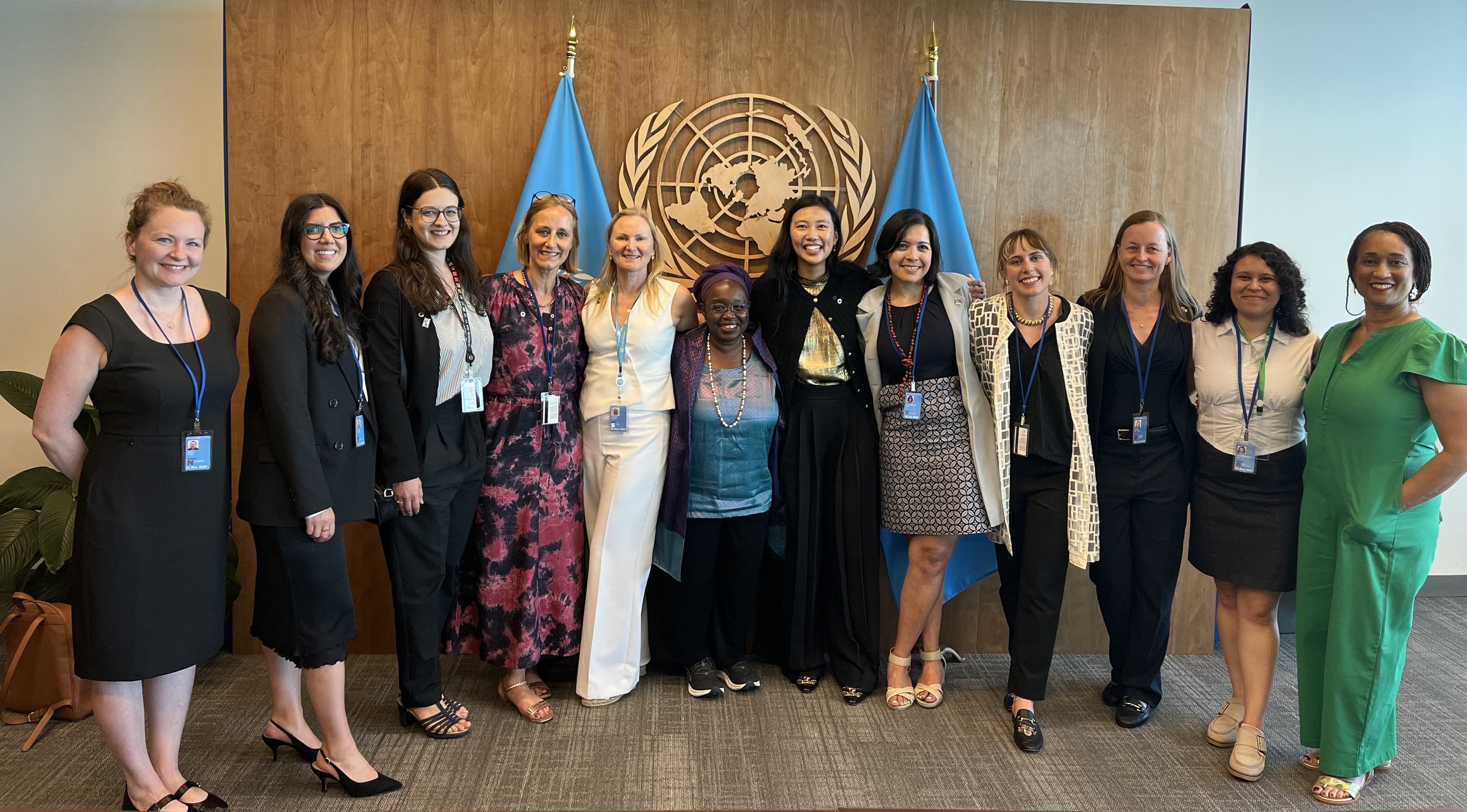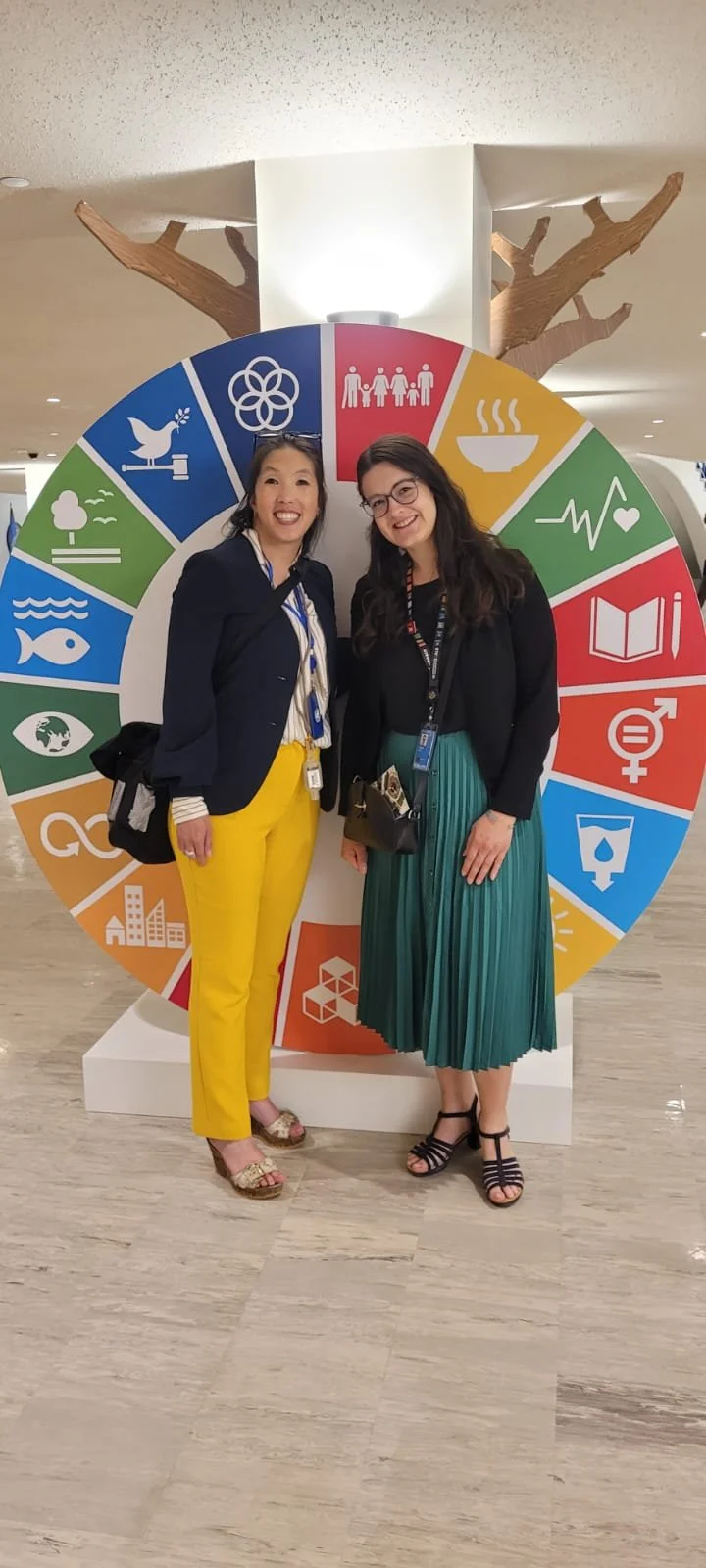Sustainable, Inclusive, Science- and Evidence-Based Solutions for the 2030 Agenda
From 14 to 23 July 2025, the International Association of Universities (IAU) actively participated in the United Nations High-Level Political Forum on Sustainable Development (HLPF), held under the auspices of the Economic and Social Council. The 2025 Forum took place under the theme “Advancing sustainable, inclusive, science-and evidence-based solutions for the 2030 Agenda for Sustainable Development and its Sustainable Development Goals (SDGs) for leaving no one behind.”
This year’s review focused on SDG 3 (Health), SDG 5 (Gender Equality), SDG 8 (Decent Work and Economic Growth), SDG 14 (Life Below Water), and SDG 17 (Partnerships). For the IAU, the HLPF provided a unique opportunity to highlight the transformative potential of higher education institutions (HEIs) in advancing the 2030 Agenda and to reinforce the role of universities as key actors in sustainability, equity, and evidence-based policymaking.
A Strong IAU Delegation and Active Engagement
The IAU delegation was led by Secretary General Dr. Hilligje van’t Land and Senior Programme Officer for Sustainable Development Isabel Toman. They were joined by long-standing partners, including Dr. Gunnar Köhlin and Tina Parasto Afshari from the Environment for Development (EfD) initiative at the University of Gothenburg, Sweden; Fanta Aw, Executive Director of NAFSA; Katrin Kohl and Charles Hopkins, UNESCO Co-Chairs in Reorienting Education towards Sustainability at York University, Canada; Noah Sobe, Chief of Section of Higher Education, UNESCO; Svein Stolen, Rector of the University of Oslo, Norway; and Yume Yamaguchi from United Nations University, amongst others.
Throughout the week, the delegation contributed to numerous official and side events, facilitated knowledge exchange among international stakeholders, and reaffirmed the indispensable role of HEIs in fostering evidence-based policy, sustainability, and inclusive development.
Events with IAU and Higher Education Involvement
Official Side Event: Solving Real-World Water Challenges through Empowering Youth Innovation
18 July, PRME/UN Global Compact Office, New York & online
Co-organized by PRME Students, HESI Student Action Group, UNESCO IESALC.
This session highlighted how students and young people are tackling pressing water issues—from urban flooding and biodiversity loss to water equity and pollution. Grounded in the of SDG 6 (Clean Water & Sanitation), SDG 8 (Decent Work & Economic Growth), and SDG 14 (Life Below Water), it brings together higher education, corporate professionals, and youth to co-develop pathways that link sustainability education with innovation, community impact, and green careers. More information here.
Global Higher Education Symposium
18 July, Invitation-only, New York
Partners: UNAI, UNESCO, ISC, IAU, SDSN, German Center for Research, York University.
Held alongside HLPF, this symposium addressed the critical role and potential of, as well as trust in, higher education institutions (HEIs). As globally networked actors in advancing livable futures across the globe, HEIs must aim to critically engage with current frameworks, such as the SDGs, as well as a post-2030 development agenda. Learn more here.
HESI Global Forum 2025
21 July, online
Held annually alongside the HLPF, this year’s HESI Global Forum focused on “Breaking Barriers in Sustainable Development Through Scientific, Inclusive and Equitable Solutions.” In this online session, the IAU promoted the voices of its Global Cluster Higher Education for Sustainable Development (HESD) by showcasing collective actions from universities around the world and reaffirming their role in addressing complex, interlinked challenges. As the coordinator of the Global HESD Cluster, the IAU provides space for institutions to share good practices, align with the SDGs, and influence global sustainable development policy.
Official Side Event: Accelerating Decent Work and Inclusive Economic Growth (SDG 8) Through Higher Education and Research
22 July, UN Headquarters, New York
Co-organized by IAU, ILO, University of Gothenburg, University College Dublin, UNAI, SDSN/SDG Academy, University of Auckland, University of Nigeria Nsukka, Makerere University, University of Economics Ho Chi Minh City, and Member State partners Nigeria, Kenya, and Uganda.
Academia is uniquely positioned to be a driver of sustainable development through research, innovation, education, and collaboration. In support of SDG 8 Decent Work and Economic Growth, universities have the opportunity and responsibility to shape an inclusive, equitable and resilient future. Knowing this, this official side event brought together international voices to explore how universities can contribute to decent employment and sustainable economies.
IAU Secretary General Dr. Hilligje van’t Land delivered the opening remarks in this session, emphasizing the power of higher education as both an engine of innovation and a foundation for equity. Tina Parasto Afshari highlighted EfD’s efforts to integrate sustainability in research agendas, while other panellists showcased global models linking academia with inclusive development. Learn more about the event here.
Side Event: Teaching the Change – Inclusive, Evidence-Based Learning for the SDGs
22 July, online
Co-organized by Sulitest and PRME,
In a rapidly shifting world shaped by misinformation, eco-anxiety, technological disruption, and polarized politics, education systems are at a critical crossroads. This side event, organized by Sulitest and Principles for Responsible Management Education (PRME), explored how science-based, inclusive, and transformative education can support the 2030 Agenda and ensure all students develop sustainability literacy–knowledge, skills and mindset. Learn more here.
Engaging with Multilateral Stakeholders
IAU’s presence extended beyond side events. The delegation engaged in strategic meetings with peers and partners, including representatives from Yale University, University of Bergen, CIFAL Saudi Arabia, and the UN Academic Impact (UNAI). IAU also took part in the launch of the Major Group Organizing Partners Handbook during a session on multilateralism, where universities were recognized as vital contributors to global governance.
IAU’s engagement throughout the HLPF reinforced its role as a bridge between higher education and the UN system. By convening members and partners, IAU amplified the voice of universities worldwide, demonstrating how HEIs are addressing complex, interlinked challenges through research, innovation, and international collaboration.
Looking Ahead: IAU’s Continued Commitment
The HLPF 2025 marked a renewed call to accelerate progress toward the 2030 Agenda, and the IAU reinforced its commitment to ensuring higher education remains central in this global effort. With its extensive network of members and partners, the IAU will continue advocating for the recognition of HEIs as key actors in sustainability—locally, nationally, and internationally.

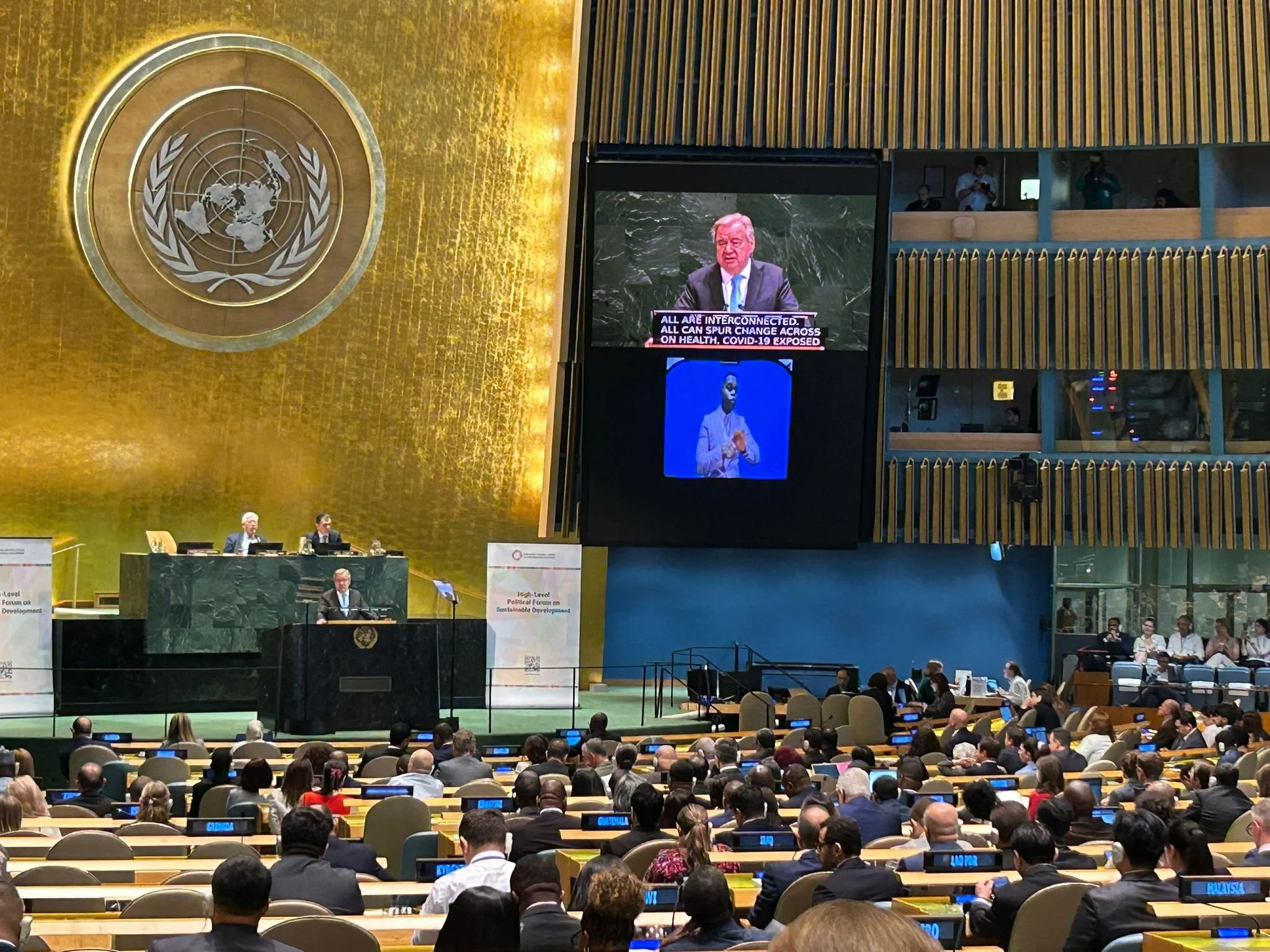
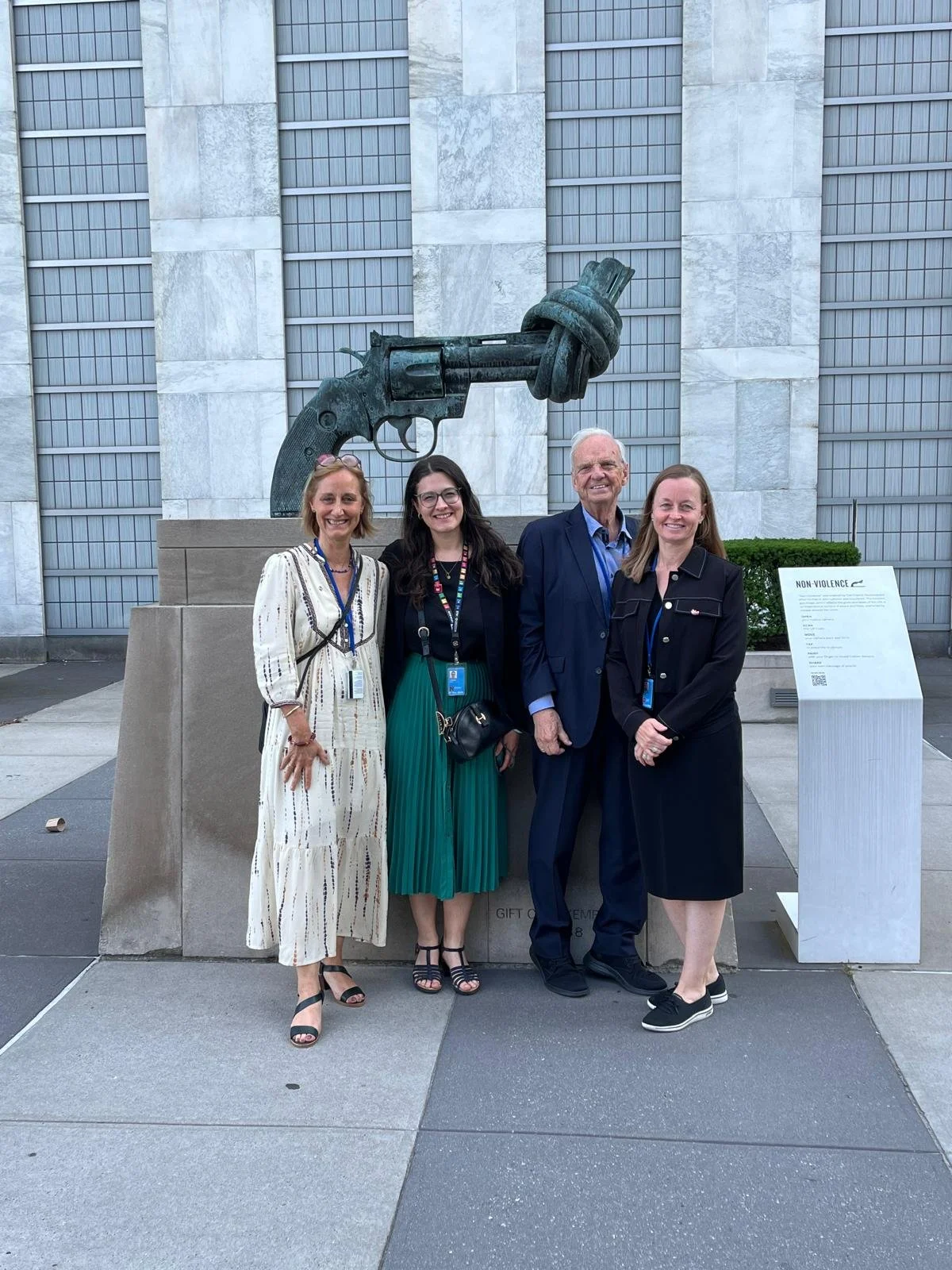
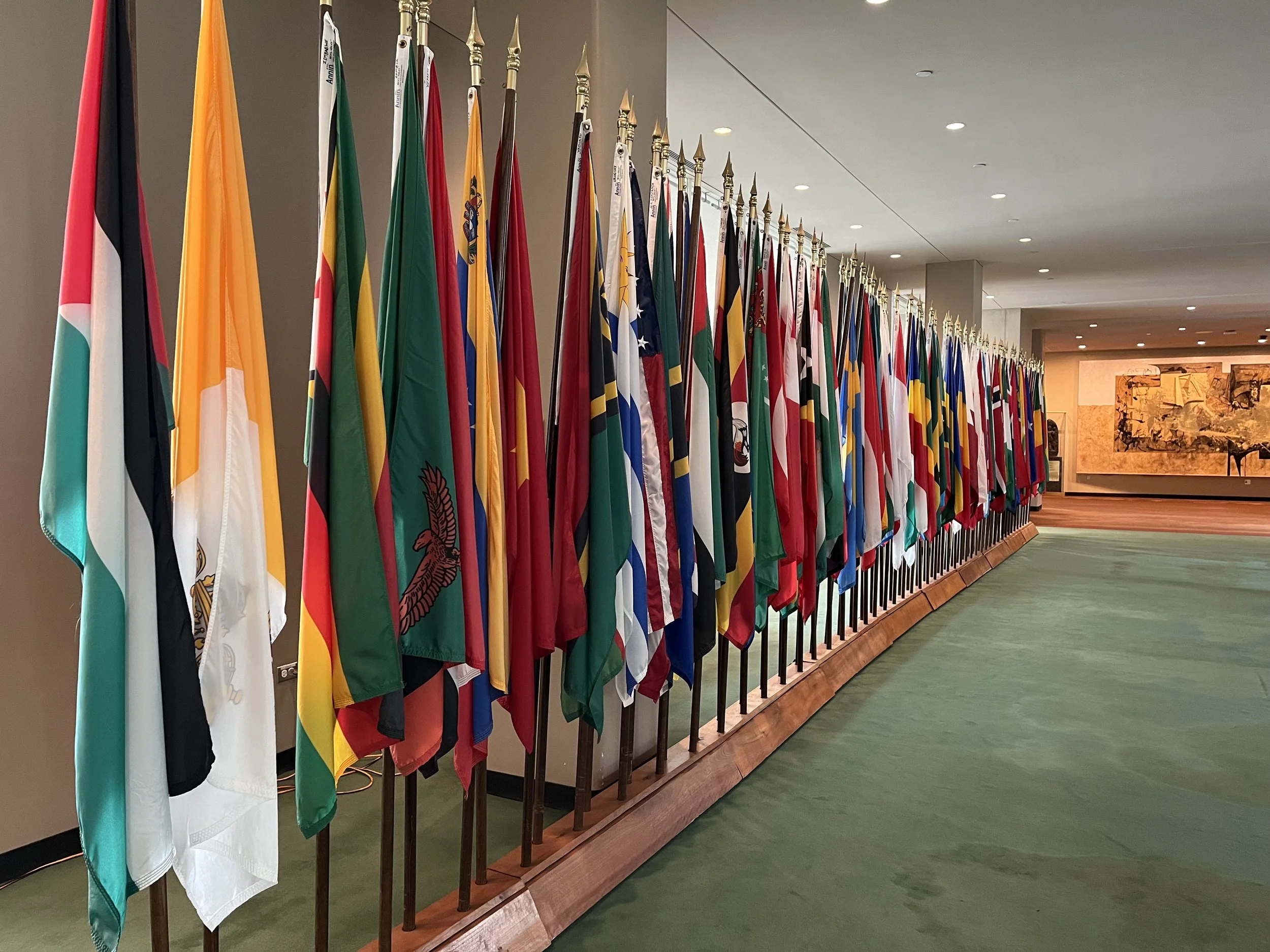
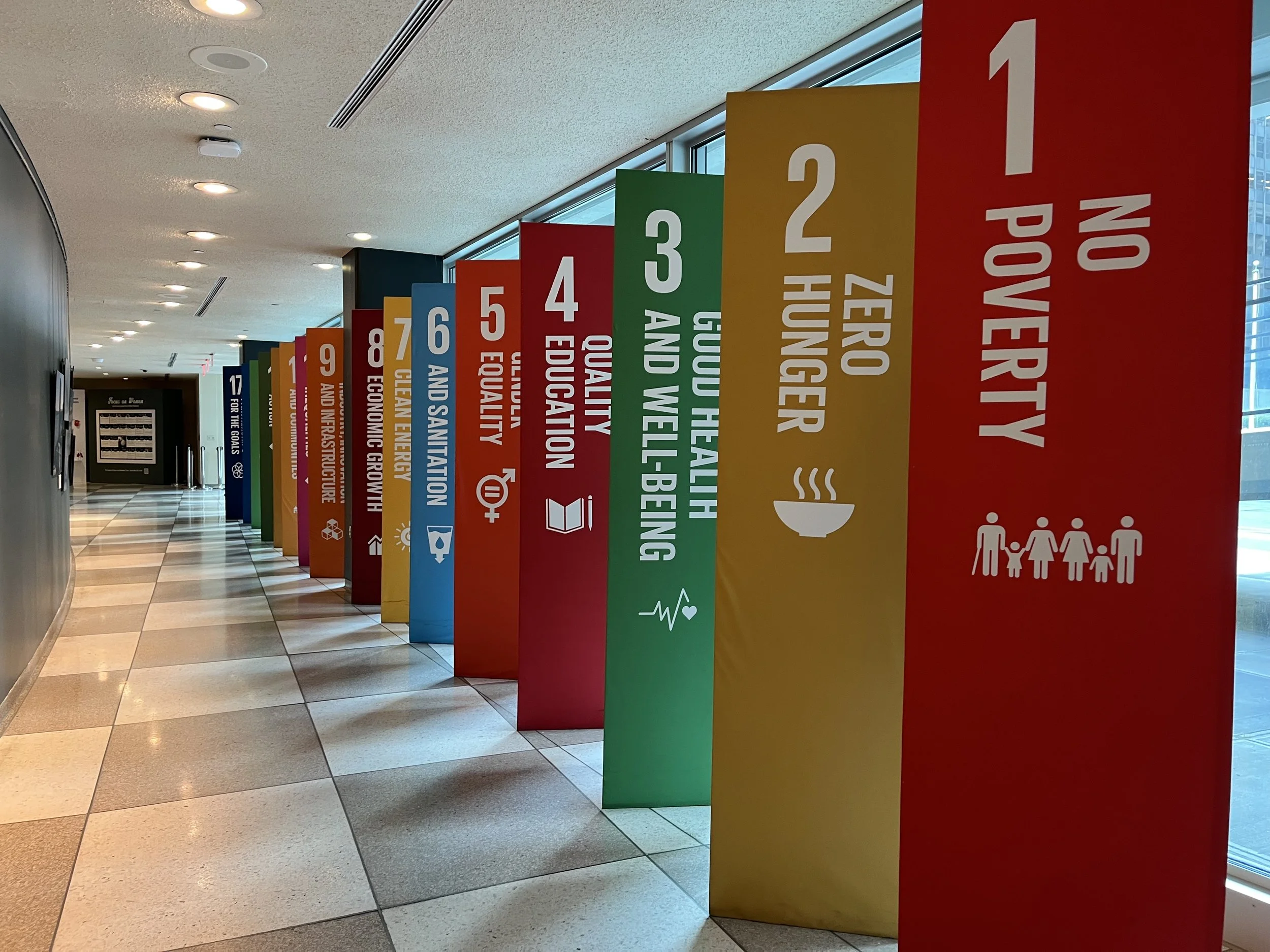




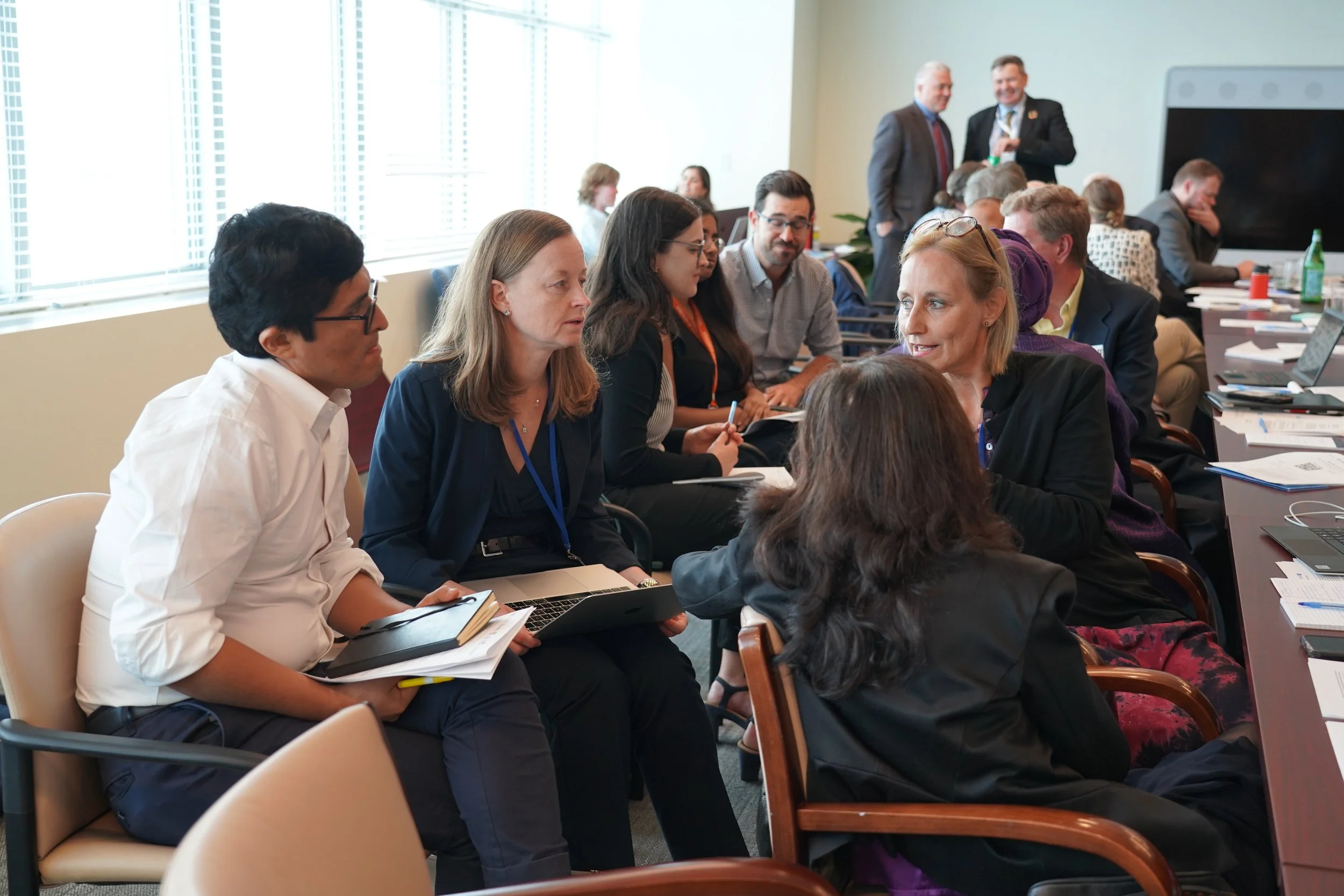

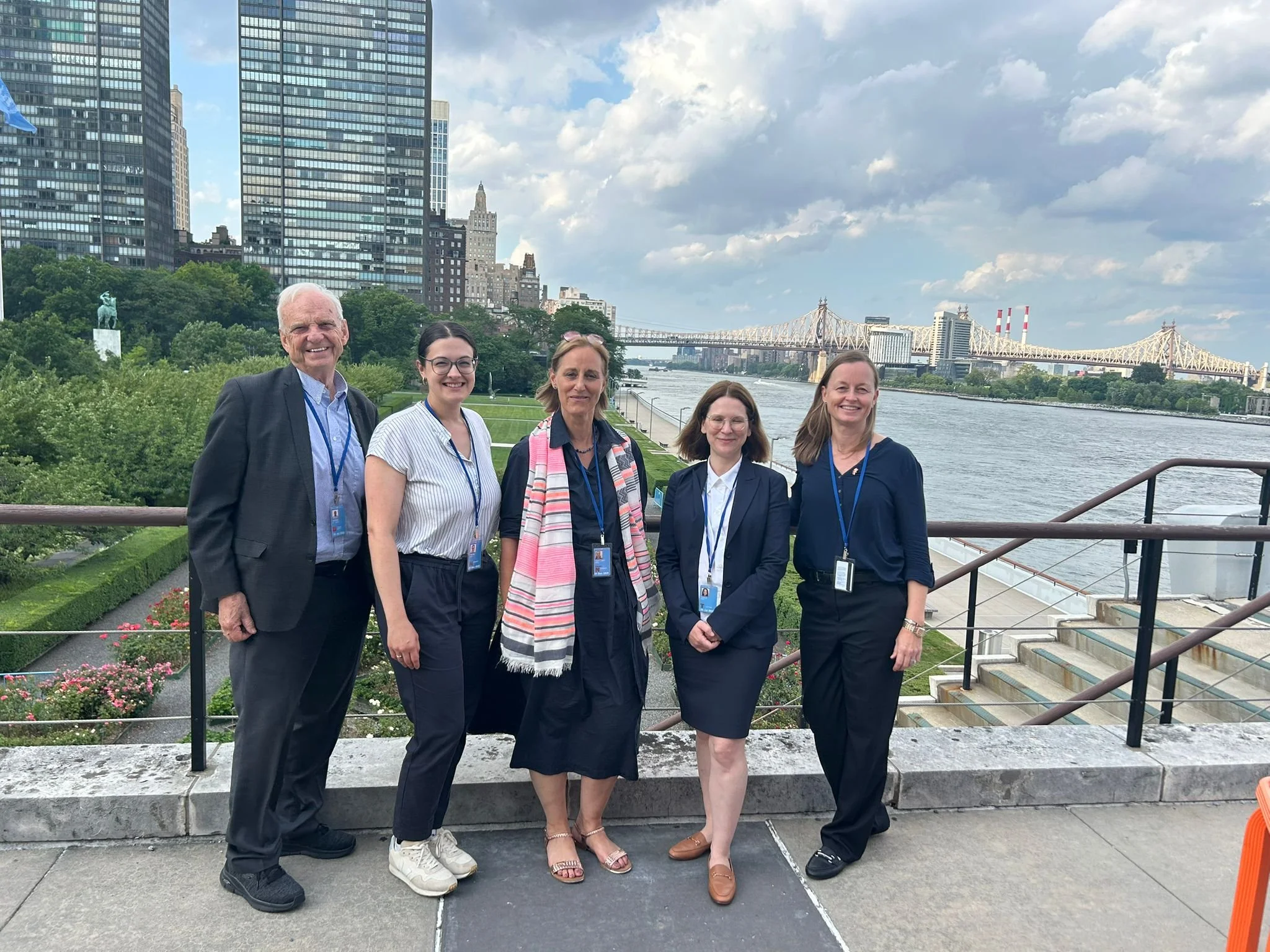
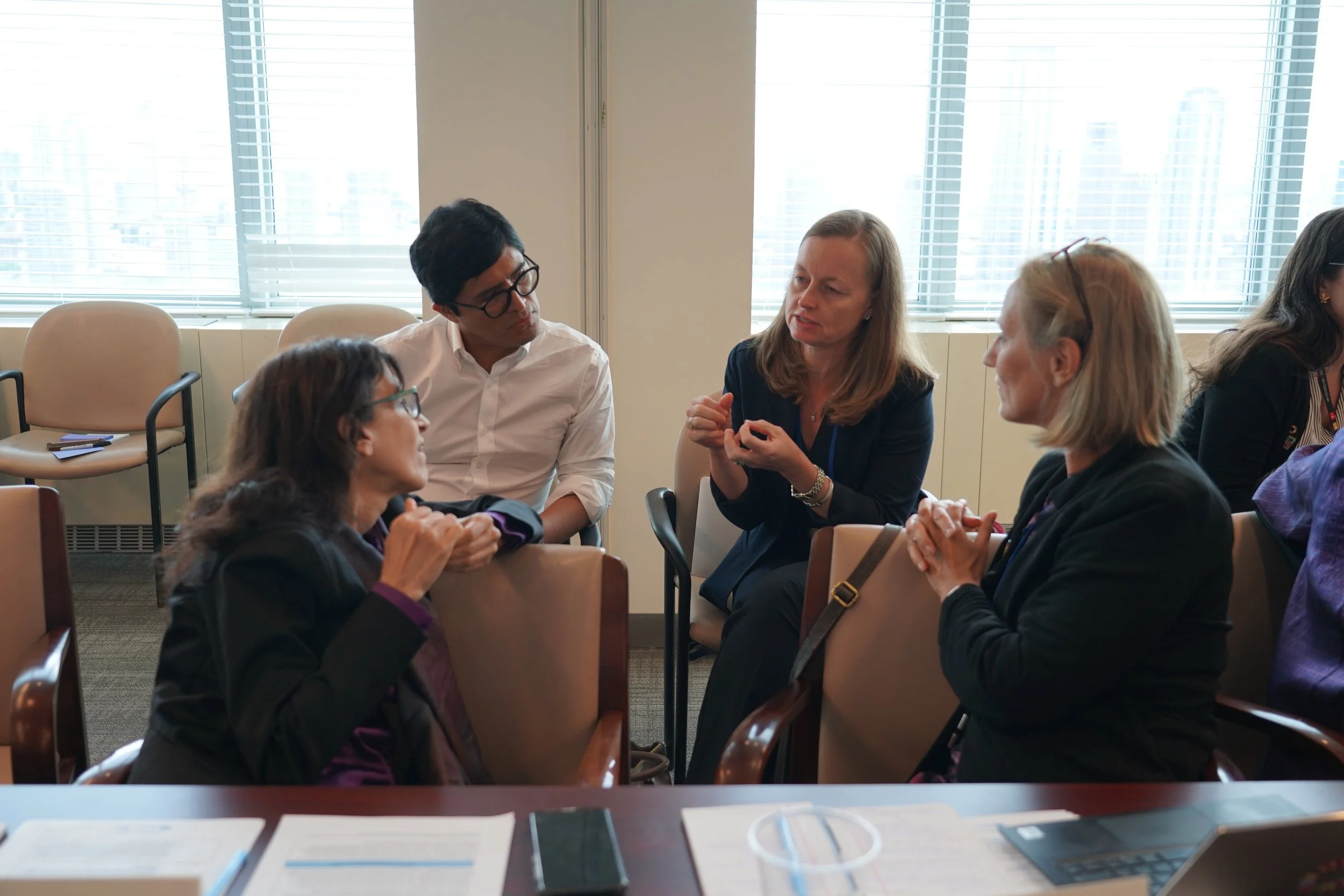
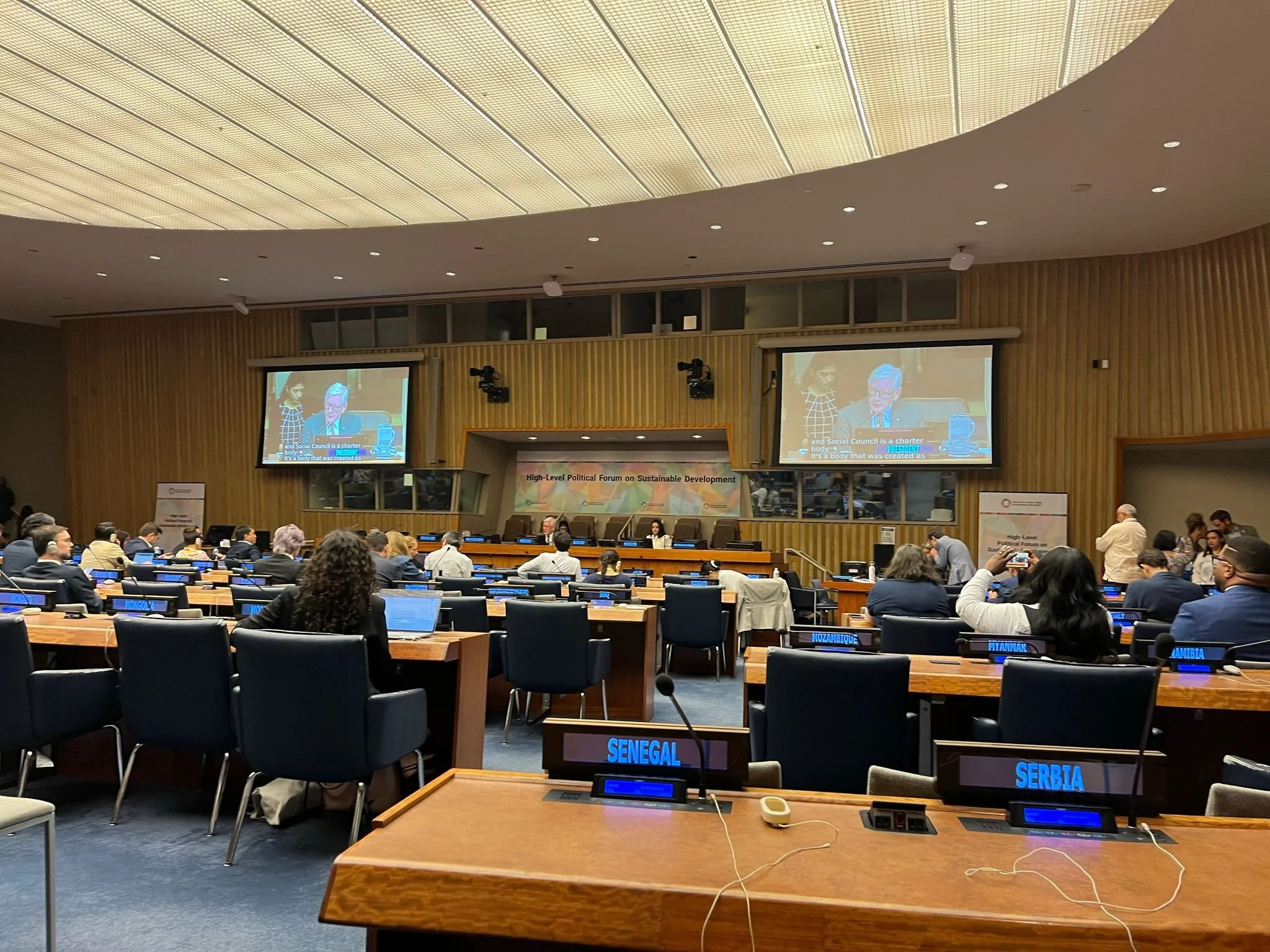



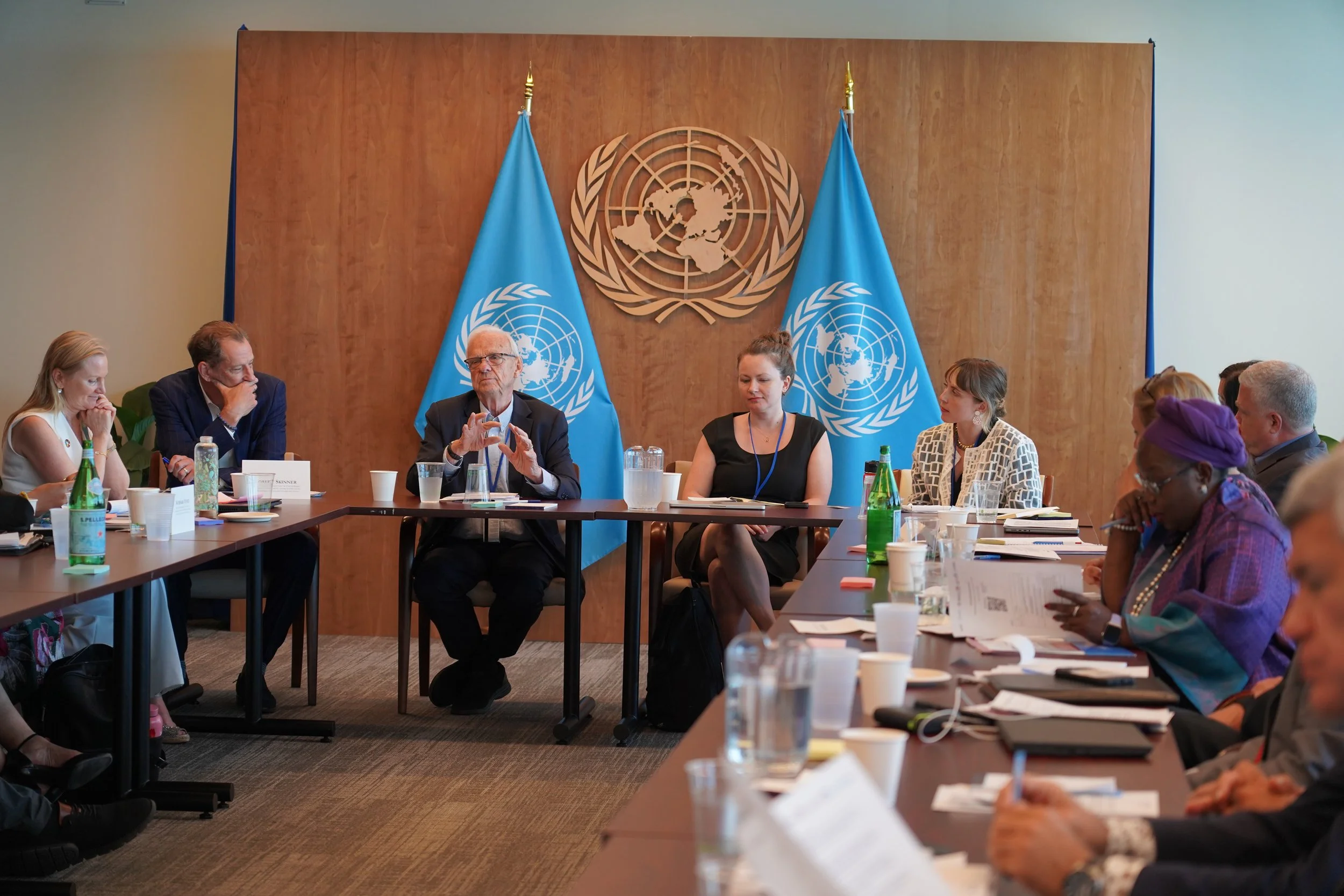
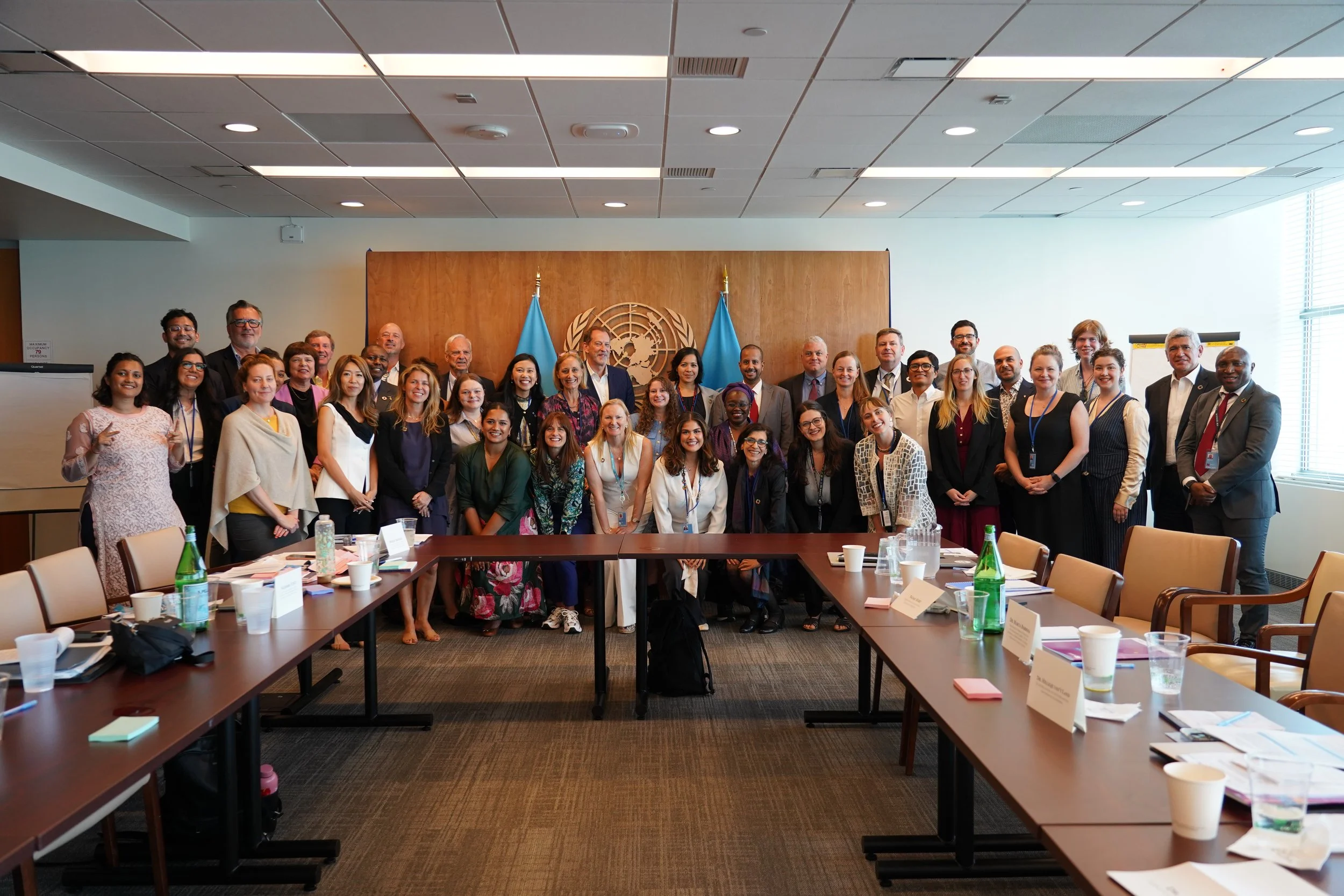
More about IAU at the HLPF: IAU has Consultative Status with the Economic and Social Council (ECOSOC) which enables participation in this High-Level event since 2019. Read about current and previous IAU engagement at the HLPF here.
For details about the IAU 2025 mission to the HLPF, please read the Report "Higher Education at the UN HLPF 2025 – Insights from the IAU " here.

